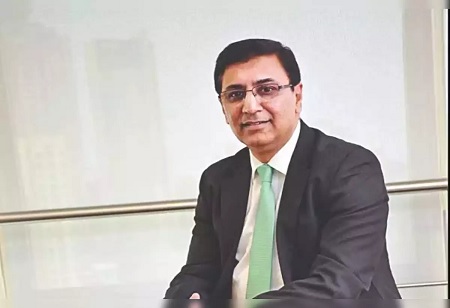
Vodafone Idea's CEO plans to Introduce 5G services in next six months

 Vodafone Idea Limited is set to roll out its 5G services in the country within the next six to seven months, according to the company's CEO, Akshaya Moondra. Following the quarterly results presentation, Moondra discussed the upcoming launch, stating that during that timeframe, there will be a clearer understanding of how to generate revenue from the technology in the Indian market. He emphasized the substantial investments made in 5G infrastructure but pointed out the current challenge of a lack of monetization. Moondra noted that the current pricing structure for 5G results in a discount on 4G, as usage on the new network is not accounted for.
Vodafone Idea Limited is set to roll out its 5G services in the country within the next six to seven months, according to the company's CEO, Akshaya Moondra. Following the quarterly results presentation, Moondra discussed the upcoming launch, stating that during that timeframe, there will be a clearer understanding of how to generate revenue from the technology in the Indian market. He emphasized the substantial investments made in 5G infrastructure but pointed out the current challenge of a lack of monetization. Moondra noted that the current pricing structure for 5G results in a discount on 4G, as usage on the new network is not accounted for.
India officially introduced 5G technology in October 2022, with Reliance Jio and Bharti Airtel already providing 5G services in over 7,764 and 5,000 cities, respectively. Despite this, Vodafone Idea, the third-largest telecom operator, has not yet launched its commercial 5G services. For the initial phase, the company has implemented 5G Base Transceiver Stations (BTS) in Pune and Delhi. Vodafone Idea has consistently stated that it won't initiate its 5G services until it secures the necessary funds. The company's CEO, Akshaya Moondra, emphasized the need for industry movement towards monetization, considering the substantial investments made without any returns. Moondra outlined that the company's strategy will be shaped by the progress in 5G adoption and monetization in the market.
At present, the telecommunications industry operates without specific charges, and the level of adoption does not accurately reflect what customers are willing to pay for increased usage of the same applications, which is particularly relevant in various 5G use cases, according to Moondra. Meanwhile, the telecom company successfully reduced its losses to Rs 6,990 crore in the third quarter ending December 2023, as opposed to Rs 8,746 crore in the previous quarter. The Average Revenue Per User (ARPU) experienced a year-on-year growth of Rs 10, reaching Rs 145, and on a sequential basis, ARPU increased by Rs 3. Additionally, the company plans to phase out its 3G users within the next six months.